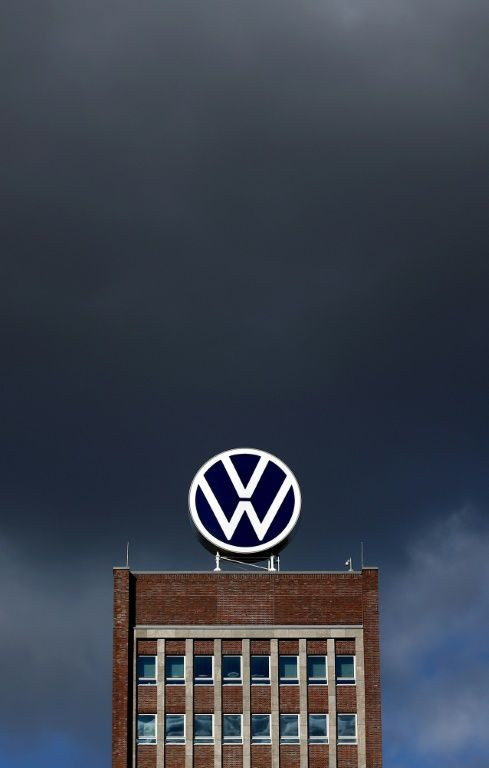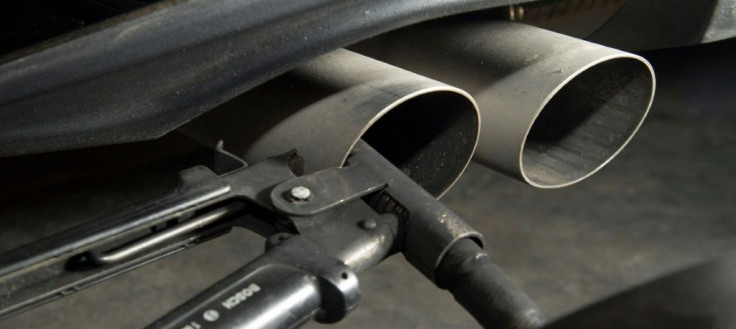Top German Court Opens Door To 'Dieselgate' Compensation
A top German court said Tuesday that a driver whose car was equipped with illegal emissions cheating software may be entitled to some compensation from Volkswagen, possibly paving the way for payouts to tens of thousands of other "dieselgate" plaintiffs.
Judges at the Federal Court of Justice in Karlsruhe signalled in a preliminary opinion that plaintiff Herbert Gilbert could be considered to have suffered "damages" as a result of the scam.
But they added that he was probably not entitled to a full refund of the car's original purchase price because he had been using it for years.
A ruling on the landmark suit, the first "dieselgate" case to reach Germany's highest civil court, will follow on May 25.
But the preliminary opinion was closely watched as the case could set a legal precedent.
Any compensation "should to a certain extent take into account" the usage of the car, presiding judge Stephan Seiters said.

The saga started in 2015 when Volkswagen was forced to admit it had installed "defeat devices" in 11 million diesel engines worldwide designed to dupe lab tests and make the cars seem less polluting than they really were.
One of the cars equipped with the rigging software belonged to Gilbert, a life-long Volkswagen customer.
"I was shocked and very disappointed when VW wrote to me to tell me my car was affected," the 65-year-old said in an online press conference last week.
Gilbert had bought a used Volkswagen Sharan from a dealership in 2014 for 31,490 euros ($34,370), which he said he chose specifically because of its alleged environmentally friendly credentials.
Accusing Volkswagen of deliberately deceiving him, he wants to return the car and be paid back for the full purchase price.
Volkswagen rejects his claim, saying he suffered no economic damage and was able to keep driving his car. The cheating function was removed in a mandatory software update.
"The court has positioned itself on the side of the consumers," Gilbert's lawyer Claus Goldenstein said after the judges' remarks on Tuesday.

Volkswagen for its part said it disagreed with judges' preliminary view that "purchasing the car constitutes grounds for damages" since customers "could use the vehicle at all times."
The outcome of the case will serve as a guideline for the roughly 68,000 individual cases still pending.
Gilbert first filed his complaint in 2017 with the district court in Bad Kreuznach, near the western city of Mainz.
The court rejected his claim, but Gilbert won on appeal with judges ordering VW to take back the car and refund the plaintiff to the tune of 25,616 euros -- less than Gilbert had sought.
Both VW and Gilbert appealed the judgement, pushing the case up to Germany's highest civil court.
The individual complaints are separate from a massive collective suit that Volkswagen settled in Germany last week.
The out-of-court settlement brought an end to Germany's biggest ever lawsuit after VW agreed to pay around 750 million euros in compensation to some 235,000 customers, or between 1,350 and 6,250 euros per car.
But it's a modest amount compared with the much larger payouts drivers in the United States have received.
Overall, the dieselgate scandal has cost the VW group -- which includes the Porsche, Audi and Skoda brands -- more than 30 billion euros in fines, buybacks and compensation.
The group remains entangled in a web of legal woes.
Investors in Germany have joined forces to demand billions of euros in compensation over VW's steep share price plunge in the days after the scandal became public knowledge.
Investigations and court cases against several top VW figures, including present boss Herbert Diess and former chief executives Martin Winterkorn and Matthias Mueller, also remain open.
© Copyright AFP 2024. All rights reserved.





















